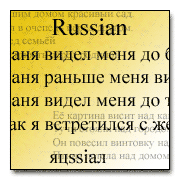Language Salad
Created | Updated Aug 14, 2011
Summer is a restful time for some, full of the study of nature's wonders. Sometimes we wonder about nature, sometimes nature wonders about us. Me, I wonder what words they use to describe us? And are they polite?
Language Salad

The Gheorgheni Nature Preserve – about 60 square feet of mostly dirt and scrubby grass out behind the new screen door (which Joe's put in upside down, for some reason) – has a new addition. Joining the minyan of squirrels and the brightly-coloured birds (and the more sable crows) is a terminally cute bunny (I think he's a young hare). According to Elektra, he 'likes the same noms as the squirrels.'
Ah, noms.
I don't know whether this word has got into the OED yet (note to self: ask Icy North or Gnomon). Elektra's got it off the Lolcats website, where it means 'food animals like to eat'. Elektra is a word-borrower, and what she borrows, she never returns. This means we're stuck with noms till the cows come home for theirs. I will not complain until she starts referring to our evening meal as 'people noms'. Maybe not even then.
The other day, we were over in the pool, swimming around, picking up leaves from the surface of the pool, or the bottom, if they'd sunk. (I can do that, I have prehensile toes.) As I went, Elektra called out, 'See that long thing on the bottom? Don't pick it up. It's a dead millipede.'
I was grateful for the warning, but then Elektra went on, 'It must've fallen in chasing a bug, and drowned, because they don't make water wings that small. It's safe enough – it's dead – but it's still ekelhaft.' I agreed with that. It was definitely ekelhaft. Which sounds so much better than 'yucky'.
Elektra is a speaker of Early High Language Salad. This is not surprising. Three out of four grandparents were non-native English speakers – one granny was Pennsylvania Dutch, and the other side of the family was Lithuanian. So when it comes to laundry, we separate the gotkes (underwear in Polish) from the other wash, and when anybody's got a cold, they need a sniptik.
I've never been sure whether sniptik comes from Yiddish (on the Litvak side), or somewhere in the direction of Germantown, but German speakers, isn't that a quaint word for a pocket handkerchief? "Snip" = "schnupf" = "sniff" + "tick" = "Tuch" = cloth. A sniffle-cloth.
There's that word that will get your mouth washed out with soap by Lithuanian grandmothers, which I can't even spell. It gets flung in exasperation in the direction of cats who eat lizards. (Lizards are beneficial, and we like them. Besides, they make cats throw up.)
To make matters worse, of course, I'm a linguist, and Elektra's picked up quite a few new words over the years. Somehow, without knowing how to speak a language, she understands it perfectly when she hears it. If we could bottle this gift, we'd make a fortune. The times I've turned to translate, and she's said, 'Yeah, I got that…'
And then there's travel. After years of living in Greece, things stick, you know? I'm sure she meant it affectionately when she called the teenagers who hang out in the parking lot malakas. In Greece, young fellows call each other jerks all the time. It's sort of a badge of honour.
Which explains why I can't take language purists seriously. I've got my own fusion duolect going on at home, and it suits me just fine. I can't quite understand why people get outraged over the 'incorrect' use of this or that new phrase, or the creeping in of expressions from somebody else's neck of the woods. I mention no names, but friends, lighten up.
What about you? What words or phrases have you picked up over the years, either for family or personal use, that your English teacher probably thought you had no business knowing? If you've got any good ones, pop them in at the bottom of the page. We'll make a meal out of them.
Noms, even. We might even figure out what the squirrels are saying.
